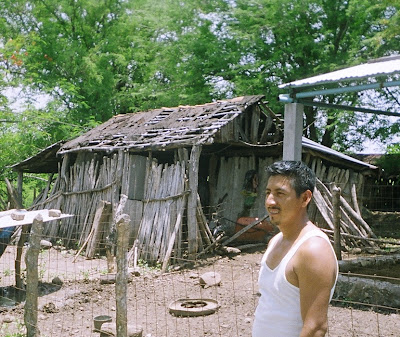There have been very few times in my prayer when I have felt some sort of concrete response, and even those times, there was no booming voice from heaven telling me what to do or what I needed to hear. It was more subtle than that. Most of the time, I suspect God answers our prayers in ways we never even realize or recognize. We are reading the book Eat, Love, Pray by Elizabeth Gilbert for our book club right now, and her description of a prayer experience really resonated with me. Gilbert was raised Christian, but had not really practiced her faith as an adult. At a low point in her life, in the middle of the night on her bathroom floor struggling with her misery in an unhappy marriage, she says she begins to pray. She begins, amusingly enough, by introducing herself to God - literally. She says,
"That's right--I was speaking to the creator of the universe as though we'd just been introduced at a cocktail party. But we work with what we know in this life, and these are the words I always use at the beginning of a relationship." (pg. 15)As she cries, she begs God over and over to tell her what to do, and she says that she hears a voice. But the voice is not that, in her words, "Old Testament Hollywood Charlton Heston voice," but rather:
"It was merely my own voice speaking from within myself. But this was my voice as I had never heard it before. This was my voice, but perfectly wise, calm and compassionate. This was what my voice would sound like if I'd only ever experience love and certainty in my life. How can I describe the warmth of affection in that voice, as it gave me the answer that would forever seal my faith in the divine?" (pg. 16)I like to think that this is how God speaks to us. That there is this inner voice within us, if we really and truly listen to it, that is God's voice speaking in us and through us. So what did the voice say to her? Here is the real brilliance of it - the voice told her to go back to bed. That is it. She reflects:
"It was so immediately clear that this was the only thing to do. I would not have accepted any other answer. I would not have trusted a great booming voice that said either: You Must Divorce Your Husband! or You Must Not Divorce Your Husband! Because that's not true wisdom. True wisdom gives the only possible answer. Go back to bed, said this omniscient interior voice, because you don't need to know the final answer right now, at three o'clock in the morning on a Thursday in November. Go back to bed, because I love you. Go back to bed, because the only thing you need for now is to get some rest and take good care of yourself until you do know the answer. Go back to bed so that when the tempest comes, you'll be strong enough to deal with it. And the tempest is coming, dear one. Very soon. But not tonight. Therefore: Go back to bed, Liz."This passage made me cry. It just speaks to me of God's presence with us in our darkest moments. Prayer, relationship with God, is not about God "fixing" things or solving our problems for us. Prayer is about letting God be with us and love us during the good times and the times when life seems so very hard.







